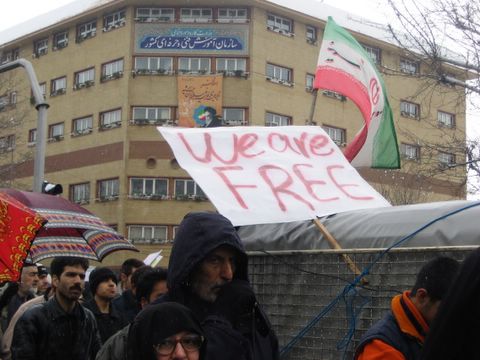
(Photographed by Karin Esposito, 2004, Tehran)
The organization Search for Common Ground (SFCG), on April 7, 2008, published the results of a second poll that it took of 710 Iranian adults , both in rural and urban areas. The first extensive survey it took of Iranian citizens was published in January 2007. SFCG has complemented the survey of Iranians by asking similar questions to 703 respondents in the United States.
As the U.S. has now successfully managed to get the UN Security Council to support a third round of sanctions against Iran, the timing of this follow-up poll of Iran-U.S. attitudes and perceptions is excellent. Although the survey addressed many specific topics, such as Iran's nuclear program and Iranian influence in the Persian Gulf, this blog is interested in the poll results related to religion, politics, and tolerance. Here are some of the main findings of SFCG's poll:
· "A growing majority of Iranians believe that it is possible for Islam and the West to find common ground." , "64% percent , now say it is possible to find common ground (up from 58%)"
· "The United States is widely perceived as seeking not only to assert control over the oil resources of the Middle East, but to weaken and divide the Islamic world and to purposely humiliate Muslims."
· "The United States is seen as pursuing goals hostile to Iran and to Islam in general."
· "64% saw the United States as purposely seeking to humiliate the Islamic world. Twenty-one percent thought the United States is disrespectful, but out of ignorance, and only 5 percent thought the United States mostly shows respect."
· "Seventy-eight percent said the United States is not very (16%) or not at all (62%) committed to the goal of creating an independent and viable Palestinian state."
· Only 32% of Americans surveyed (as Americans were also polled) said that it is a US goal to weaken and divide the Islamic world.
· "Only 14% [of Iranians] wanted Shari'a to play a smaller role" in the way Iran is governed.